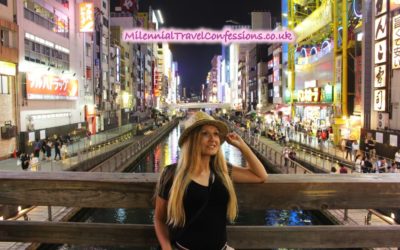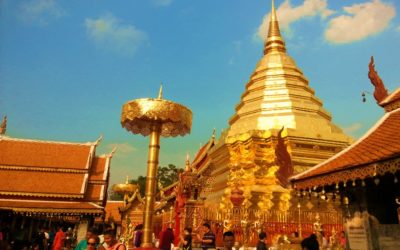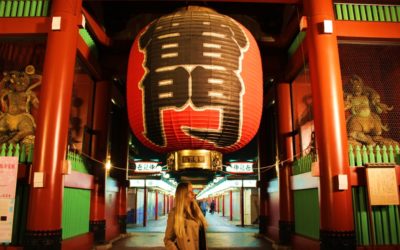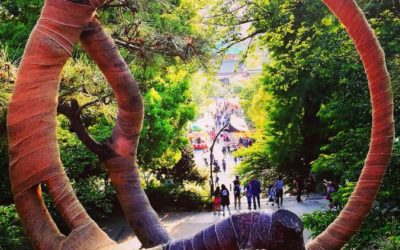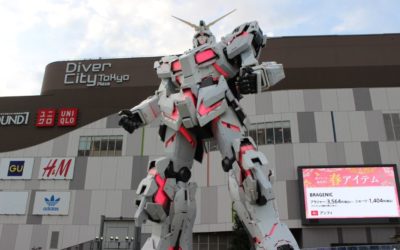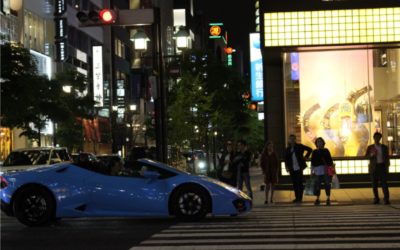Slow Travel vs. Backpacking in Asia - How to Choose?
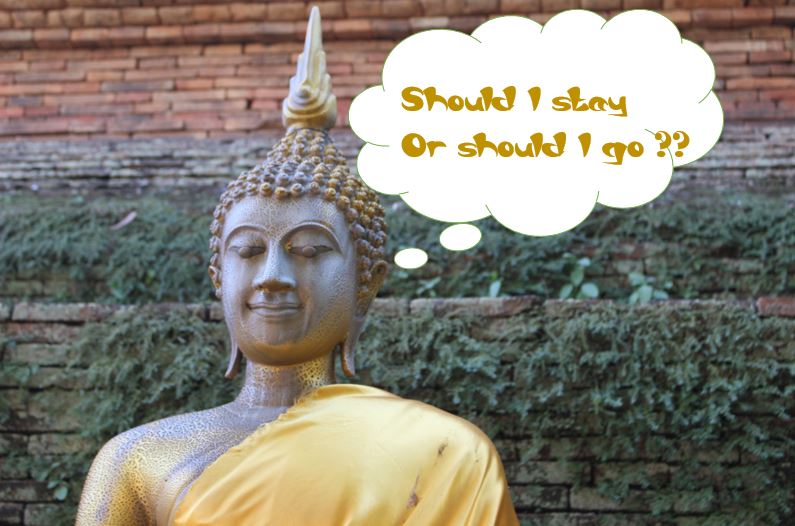
Our short stays in Cambodia and Vietnam were coming up to an end. Next stop – Thailand. This time for a much longer stay of about 3 months in total. There was a big question we needed to ask ourselves: the way we would travel.
In a nutshell, there are two most common ways of traveling, the backpacking or short-term travel and the slow travel experience, also long-term travel. Each option comes with pros and cons and it is really down to you which seems to be more appealing to you.
Option 1 – backpacker’s experience – short-term stay
- Switching location every few days
- Compromising on location of the hostel or hotel and facilities offered
- Significantly higher expenditure over 2-3 months period leading to stretched budget
- Wireless connection quality – always a big unknown until you reach the place
- Having to chance finding an empty space in a mixed dorm or hotel for unknown amount of days in a hope to get a good deal and save up on international card transactions
- Increased travel costs like flight tickets or accommodation in peak season
- Booking accommodation on the go using travel websites like Agoda, Booking or Hostelworld (Others) depending on the availability of rooms during high season
- Combination of well-planned ahead destinations and spontaneous decisions based on the research, vibe and hearsay from expats and befriended backpackers
- Experience packed with countless exciting memories, unforgettable moments and friends met along the way
- Limited ways to make money due to constant changes of location
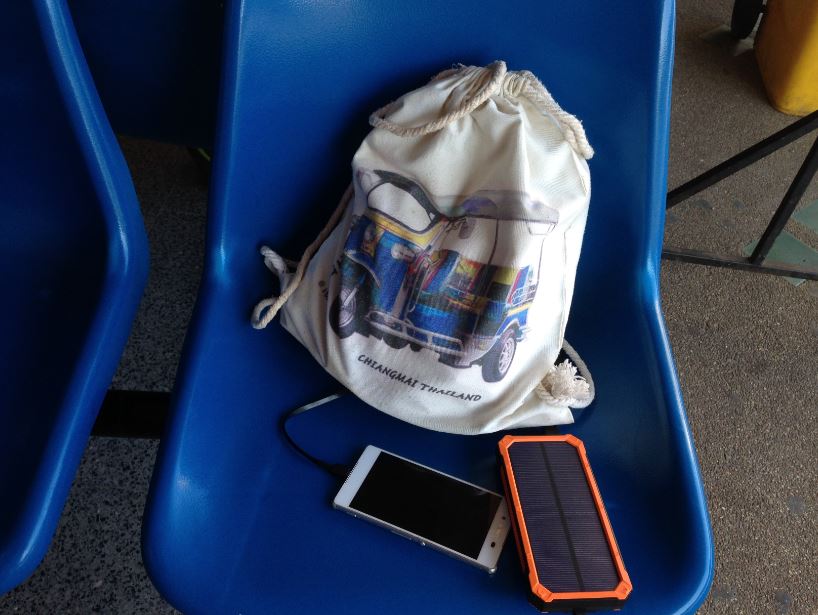
Slow travel works pretty well if you want to do trips away to neighbouring regions without having to carry your bulky backpacks with you. All you need is some cash, your phone, DSLR camera and a solar power bank!
Option 2 – slow travel experience – long-term strategy
- One, maximum two fixed locations for the duration of 2-3 months
- Taking time in doing research on places and being picky with the apartment facilities
- Taking advantage of the monthly rate which offered 25-30% of the average monthly cost charged by the hotel (often even less than what a hostel would charge for a bed in a dorm)
- Reduced travel costs – benefitting from cheap airfare and accommodation when the prices are lower
- Wireless connection quality checked before making a final decision on longer term accommodation, making it a perfect spot for remote work
- Chilled approach to travel rather than ticking everything off the bucket list
- No burden to the finances which often is the culprit in backpackers’ ended trip and sudden return home in search of topping up their finances
- More individual and isolated travel experience often demanding self-discipline, resilience and willingness to sacrifice some of your daily routine to work rather than seeing travel as escape from work
- Time to focus on your life goals including creating a business or finding remote work to pay your bills
- More time to organise your trips and discovering surrounding area
- Benefiting from sunnier days and more beneficial prices and utilising less touristic times to work or do less weather-dependent activities
- Meeting locals and forming bonds with expats who are staying in the same location for the extended period of time
- Enjoying quality time rather than ticking all possible touristic spots within 2-3 days, feeling the vibe of the place you’re staying in whilst slowly embracing the culture
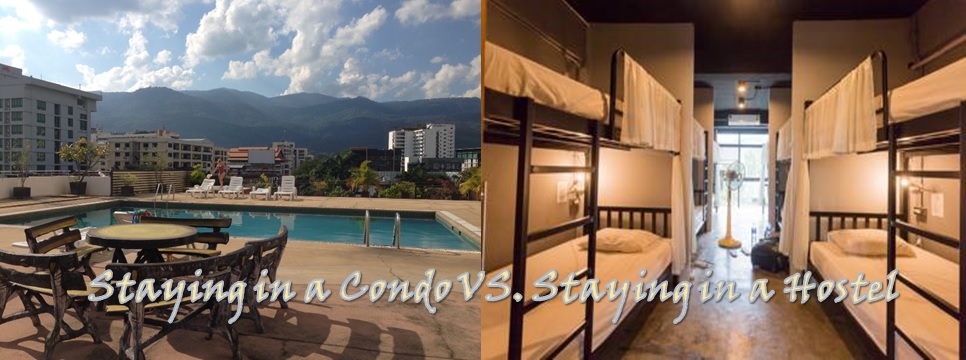
It’s really down to you what type of lifestyle you want to pursue when travelling. We chose condos for the convenience, long-term savings, good wi-fi and a quieter, homely feel.
Why did we choose Slow Travel in Thailand?
My initial thinking was option one. Backpacking Asia meant adventures and constantly moving from one place to another. It also meant meeting plenty of likeminded people to pass time with, sharing stories and encouraging each other to do all sorts of crazy things. Sounds good, right?
Then the option 2 came up and simply seemed more beneficial in the long run. After all, why would you want to spend your hard earned savings over the course or 2-3 months and then have to go back home to the corporate job that you may not even like? Yet you would still take that job as your finances will have disappeared into thin air in a few months’ time.
How about not going OTT with your daily outgoings and allocate time of your travel to working remotely? In fact, the digital nomad lifestyle seemed more chilled out than backpacking and most importantly, it allowed us to combine work with fun.
Indeed, short-term stays and backpacking all over the world seems like an incredible thing to do but it can be quite costly. If, however, your plan is to be location independent and stay away from working in a corporation behind the desk again, then a sustainable business with a reasonable cash flow is a must.
Us, the Millennials or the Generation Y, are surely less privileged than our Generation X in some ways, like job stability and money. On the other hand, we have what our parents could only dream of. So why not make the most of it?
Technology, free access to knowledge, information sharing on forums, and most importantly, very affordable plane ticket prices that allow us to see with our own eyes places previously visited by limited, usually quite affluent people. Why I was sitting at my desk for so long thinking over and over when to finally travel and leave everything behind?
Top Tips for the First Time Travellers around South East Asia
This is what we did and we are exceptionally happy with our decision. Try to be independent and do not rely on agencies that get a big chunk of your earnings, it is all doable and within easy reach. We hope you will find this quite useful:
Research places and airlines
Research, research, research! Don’t just book any first available flight. Start off with doing some research on places you want to visit and have a list of possible destinations lined up.
Although you may be 100 % prepared, your plans can be shattered for any reason, such as no transportation, weather or availability of accommodation for the preferred times and it is wise to have alternative options lined up, even as a back-up plan.
Normally, this won’t be the case but if you’re to see the sunset from the peak of the mountains and it rains, you may want to wait a few days for the sky to clear up rather than rushing things through.
Watch documentaries and videos of people’s own experiences rather than choosing locations based purely on Google images or catalogue pictures so you know what to expect, pick the less discovered spots and of course avoid the overrated touristic traps.
Lastly, when to book your airline tickets. For us, best time is usually 3 months in advance when the deals come out for the upcoming season. However, some people can get lucky booking things very last minute. Make sure you choose a safe airline and decent connecting flights to avoid lengthy time between the flights.
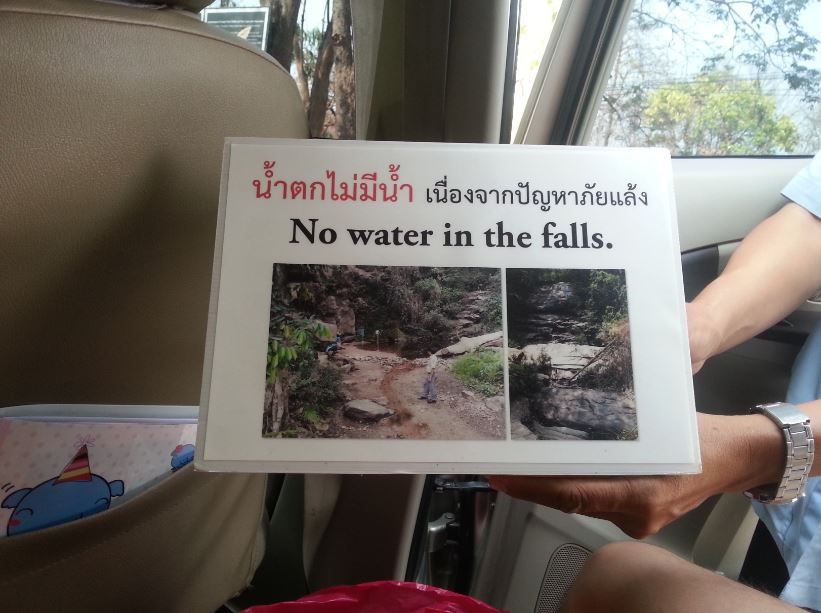
No matter how well organised you are, you can’t order Mother Nature! We took this picture during our first trip to Chiang Mai, Thailand. When we came back 6 months later, Mother Nature did not disappoint us!
Compare prices of flight tickets vs. weather conditions in the region
Compare ticket prices for flights with several airlines and find out the weather seasonality of each place you are thrilled to see. Know when is best to go and months that are best to avoid.
This is quite important factor as the dry season beauty can turn into a spoiled holiday experience if you arrive in the middle of the wet season with very high humidity. That also refers to the burning season you may want to avoid in particular. Whilst not a major factor, this can be a good take out note especially for some sun craving beasts out there who want nothing but sun.
In the coastal regions of Thailand during wet season some day trips and activities do get cancelled due to stormy weather, hours of pouring rain, grey sky, no sunset and risk of boats capsizing as some long tail boats may not withstand the waves and provide required safety.
Luckily, slow travel does not mean you have to give your stay in an exotic place a miss. You just do it during sunny days, when the weather is good and during times of grey sky, you simply get down to do your work!
Check visa-free stays, visas and visa extension costs
So you checked the flights and the weather. It is very likely you will be flying to the capital. Some destinations require you to get a visa prior to your arrival, others offer visa on arrival service and yet others are visa exempt. Wouldn’t mind staying for a little bit longer? How about drafting a list of places to visit which are a little less touristy but liveable?
My suggestion is to start off with checking where you passport allows you to go to, what are the best ways to enter the country, how long can you stay, how much do you need to fork out for visa extensions and possible flying out of the country every now and again if you want to stay for 3-6 months.
Try to find answers to the following questions
- Do I need a visa for this country?
- For visa-free countries, how many days are you allowed in the country?
- How easy is to obtain a visa?
- Where can I apply for the visa?
- What documents do I need to apply for a visa?
- Whether visiting for the first time or not, in most cases you will be granted a tourist visa which is the easiest one to get. Then, if you like the country, start looking for alternatives.
- Apply for the visa. We’ve found that applying for visas to South East Asia is by far cheaper when done in a neighbouring South East Asian country rather than doing it in the Western world. However, if you’re flying for the first time, do it directly from home, it’s quick and hassle-free.
- If you already know that you will like the place and consider revisiting in the future for a few months, how will bureaucracy affect your life of a Millennial Nomad? This is something you will be worried about when you like the country and get attached to it so much that you will be planning your next stay.
If all you want is a short-term experience, you will be best off with touristic areas and well-known backpacker’s trails. After all, they are established resorts that cater for people who simply want to chill. Spa, cocktails, unforgettable beach days, day activities topped off with some delightful Western meals.
However, if you prefer to stay longer in Asia and discover less known spots, you will shortly embrace the authentic Asian culture.
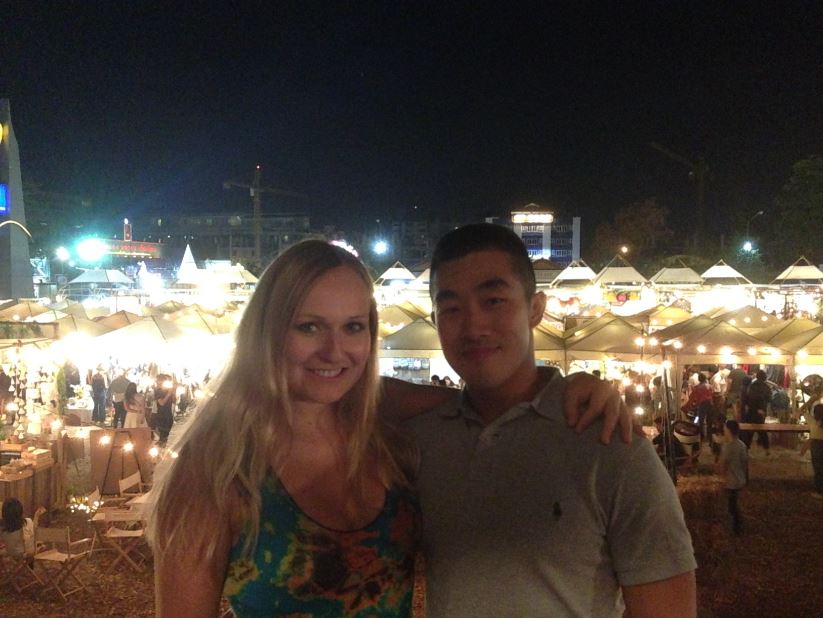
If you’re staying in Chiang Mai over Christmas, there are pop up Christmas markets like the one we attended, called Ping Fai Festival. Some events don’t advertise heavily online but if you’re staying for a while you won’t miss them.
Reality check: All that Digital Nomad wannabees and Backpackers should know
Be aware that if you want to extend your stay in a touristic resort for a few more weeks, be prepared for:
►Hordes of tourists churning over every 2 weeks
It may not be a problem to those who don’t mind meeting someone once or twice and never seeing them again. You may occasionally feel lonely seeing that you cannot make any long-term connections as people come and go and they are often couples and holiday makers.
It may not be an issue for well-connected travel partners but if you decide to travel solo, you may sometimes experience loneliness.
If you, however, prefer an undisturbed surroundings, stay clear from overly excited tourists who want to find a buddy to share some drinks with just to tell what they’ve done so far and what is still to do on the island. Otherwise, you will get to repeat the same conversation over and over with the new tourist lot.
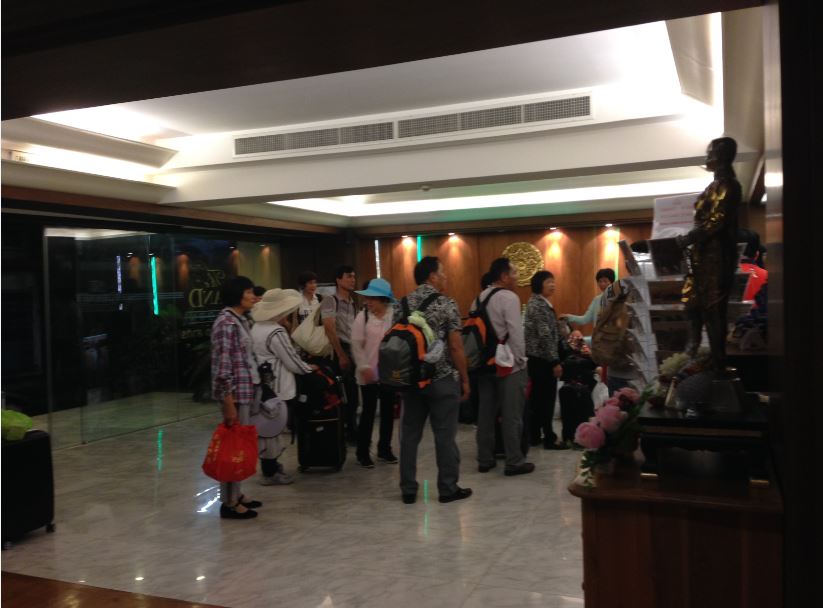
If you think this queue is long, let me tell you that we had to wait for the entire group of about 40 to be checked in as one before we got served.
►Fine dining restaurants with fine prices, not so cool
Whilst for the first week or two this may be quite enjoyable, in the long run you see yourself eating the same food over and over again. Each tourist-catered eatery will offer food almost identical to the one next door. Whilst it may be good for your tummy, it certainly won’t do any good to your probably already rinsed wallet.
…And you will never get to experience proper South East Asian dish that locals have. Well done, you deserve a pat on your back. You might as well be spending your salary elsewhere, like Shoreditch or Soho in London without leaving your job and friends behind J
My suggestion is to find a local restaurant visited by locals and expats so you get to try new and appetizing foods and maybe even meet some friendly people who know their bearings around the area.
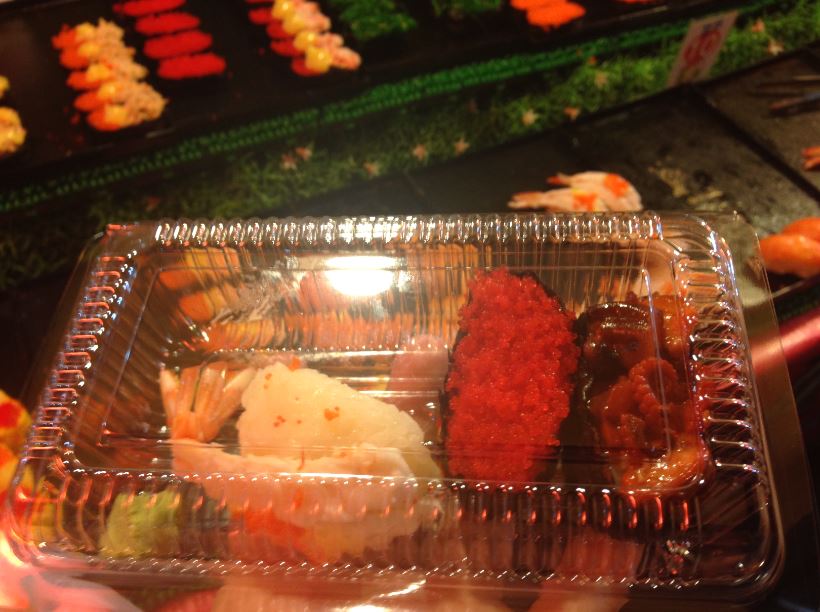
Staying around tourist resorts can be pricy if you like eating out. Luckily, you can always opt in for a takeaway if you know where to spot good night markets with tasty food and affordable prices.
►Finding long-term accommodation during peak season can be tricky and quite pricy
If you are planning to stay mainly for the peak season, there are many hotels, guesthouses and hostels to choose from in the touristic areas. Most places will be pleased to book you in for a few nights to fill their almost fully booked rooms for the high season.
Forget about asking for a monthly stay or a discounted rate. During peak season all hotel and hostel prices jump up and some even double, reaching new record highs. Hotel management will often take potluck to see if they can get even more for the room they charged £35-45 per night last year for a low to mid-range hotel.
Beware, the same rule applies to hostels, especially those on the remote islands where accommodation is scarce. High season means £30 per night even at a quite standard, often shared dorm like in Phi Phi.
If you quit your job to find a luxury long-term stay in Thailand’s coastal resort but don’t want to pay what tourists pay, be prepared for an extensive search, speaking to many locals, visiting places and hoping for the best. Occasionally, you will come across some real gems, often under-priced by the uninformed local property owner so do not give up!
Though 90% of options you will be shown will be overpriced rooms with fans and maybe some with air-con, they will be quite remote from the beach (ranging between 20-50 mins walking distance so renting a bike will be considered a must). Ah, swimming pool is not always an option but some places do offer good facilities at a higher rate.
Tips for bringing price of the accommodation down
If you are accustomed to the humidity and blazing heat, opt in for a room with a fan. They go at a lot more reasonable prices, including some bungalows by the sea! Mention that you can do your cleaning and don’t require breakfast to bring the price down, it works sometimes.
Also, show slight interest in the property but pretend that you still have a few places to visit before you make a final decision. Usually locals want the business NOW so this may be your time to negotiate the price further.
►Reliable Wi-Fi connection is a must for anyone working remotely
Whether you’re here for a retreat, remote work as Digital Nomad or someone with sufficient savings for a few months, you need internet. Internet is Millennials’ blood. It is their daily dose pumped via veins called Internet links and connections, Facebook, Instagram, WhatsApp that gives them vitality.
Even if you aren’t one of those Millennials whose hand extension is their mobile phone, you will still need a reliable sim card and Wi-Fi so you can organise your day trips, read the reviews and perhaps try to find a buddy to join you. Not to mention your family, friends and work colleagues who will be asking for frequent updates and always curious to see new videos of your adventures.
Whilst South East Asian countries are usually well connected, choosing mainland over islands will work to your advantage if you’re planning to work from your laptop.
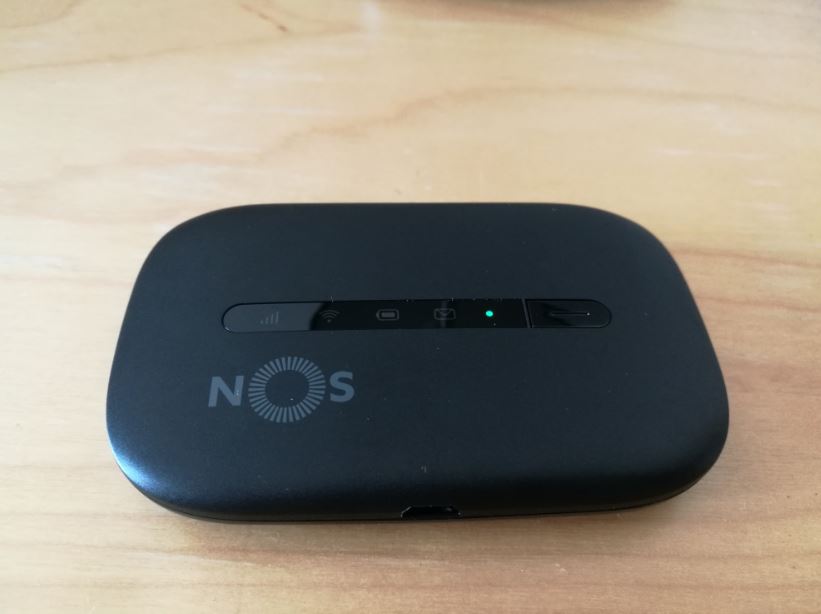
Having access to the fast and reliable Wi-fi is a necessity if you’re planning to work remotely. Make sure you check the speed during viewing if you want to stay connected at home and not only in the coffee shops or co-working spaces.
Practical advice for all Slow Travellers who want to live in South East Asia
If you are planning on working remotely from your laptop, always check the internet connection before you sign the contact or hand in any money. Finding co-working spaces outside the obvious destinations with well-established digital nomad community will prove to be rather difficult. Your options may be your working from your apartment or coffee shops.
If you are planning to stay longer term and make a living via less conventional but more technology-leveraged ways, there are many jobs that allow you to travel the world and the Internet is the answer to all your questions so make sure you get that one right.
The majority of travellers you will come across will consist of holiday makers staying short term, retirees, Westerners co-owning restaurants and bars, scuba-diving instructors and backpackers who are not thinking about work and are happy to communicate via social media platform every so often.
Weak and unreliable Wi-Fi connection at your place can prove to be frustrating, often nerve-wrecking and it means you will be venturing out to find coffee shops with Wi-Fi. Make sure you test the environment first, stay long enough and order one drink every hour or so you don’t raise suspicions.
If the baristas start frowning upon you after a few days, change the settings and repeat after a few days. I am stating here the obvious but this unparalleled method does not fail (provided you have more than a handful of coffee shops around you).
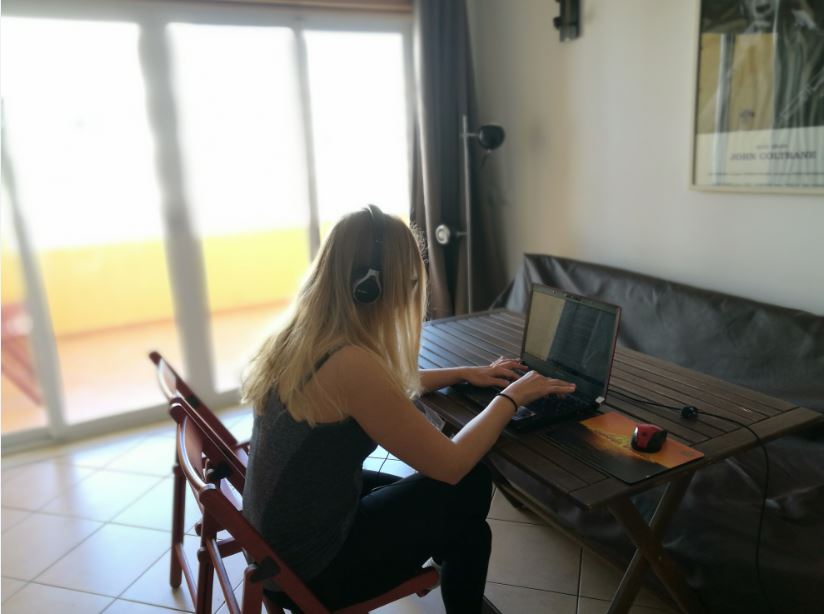
Working from our condo in Portugal. The best thing about Slow Travel is the convenience. If you work online, you can start and finish work whenever you like and do the same job wearing a onesie instead of uncomfortable office clothes!
►In a hurry? Avoid main strip to the beach with all touristic restaurants
A common practice across touristic areas around the world, also widely implemented in the Thailand’s seaside resorts around Krabi and Phuket. Get a foreign worker with good English and pretty impressive selling skills (majority of them come from India, Burma or Nepal) and make him stand outside the restaurant from late morning hours till midnight, approaching any, I mean any, passing by tourists.
It will be fun at first to negotiate food prices, pretend you have just landed or even let sellers believe that you would come back. Some of the sellers will remember your face and let you go, others will try their very same charms on you every single time you walk past their restaurant.
I don’t know about you but I seriously got annoyed and literally tried to find sidewalks so we could skip their very same lines, no matter whether you told them that you lived there and you changed your status from holiday-maker tourist to residing tourist. If you pick a less touristy destination like Bangkok or Chiang Mai, you will avoid all the hassle as big cities don’t rely on tourism nowhere near as much!
Our advice on long term accommodation in touristic resorts
Come during end of low season, just before prices shoot up. This way:
►You will see a tourist destination in its true colours, as it appears during other times of the year. This will make you understand that South East Asia is not just a paradise all year round, 365 days in the row but can be equally interesting as you won’t see tourists everywhere!
►Benefit from low accommodation at the hotels and very individual approach. Reception staff will always be around to help and you won’t see the queues to be served as not many people will be checking in and out.
►Quiet season for locals means they will have time for you and will want to secure a deal with you also on your conditions. After all, wet season with fewer tourists means less money coming in, in particular in the coastal provinces.
►There will always be some South East Asian local who can translate your wishes to the local business owner from English into their native language. Thanks to abundance of empty places, you can cherry pick. You will even be picked up and dropped off to see apartments or rooms, including some located a few miles outside the town.
This time you call the shots and are allowed to take your time to negotiate the best possible price. Arrange to move in whenever you wish to do so, not whenever the room gets empty (as during most of wet season the room will stay vacant anyway)
►Secure your long-term accommodation without having to increase your budget when prices suddenly skyrocket. Some apartments will see prices going up by mere 30%-60%, others even double. Why would you come in the middle of the hot season just to find out your room in London is cheaper?! But you’ve quit your job so what is left for you now?
►Getting good deals means your money will stretch further. Rather than going for a budget fan room in the mixed dorm or a room on the outskirts and frankly speaking, away from the main attractions, you can find a place with some good facilities and not exactly far. This means including affordable rent prices and no dodgy owners who will see you as a money making machine.
►Appreciate when the weather gets better. Every cloud has a silver lining, even the one that is pouring heavily right above your head, just wait!
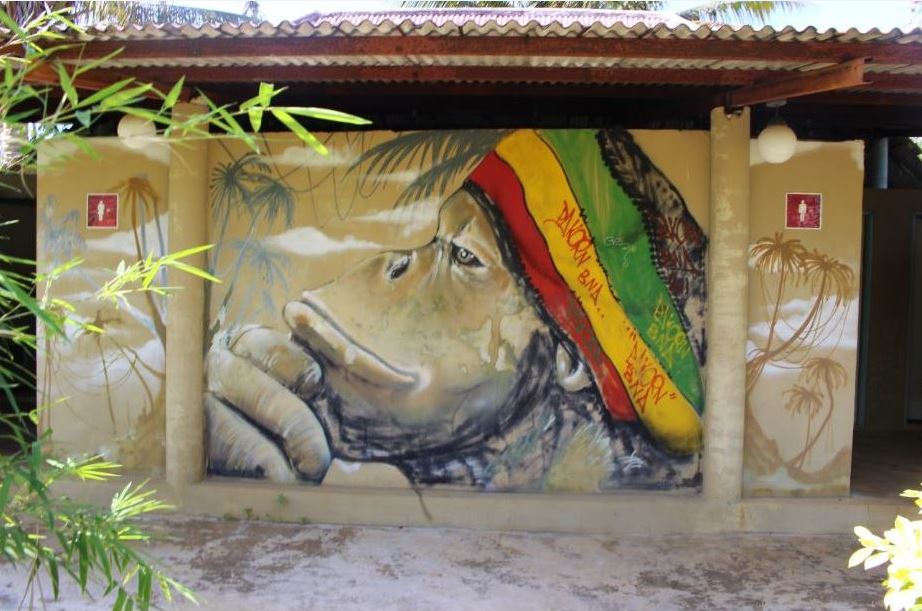
So… what negotiation techniques should I use to get my monthly rent reduced?
Slow travel – Questions to answer for aspiring Digital Nomads
Now that you’ve decided to become a digital nomad, there are other things to consider:
- Travelling with a suitcase or a backpack?
- If staying long term, how to make money online so you can sustain your lifestyle?
- What are the safest and cheapest countries to live for a starting digital nomad?
- What are your options for finding remote work?
- If you’re on a limited budget, is it better to go for a long-term accommodation like condos in a fewer places or stick to cheap hotels in Asia?
- If you staying longer, how to pick good and long term travel insurance that covers you for any eventuality?
Let us know your thoughts and share your own experiences below, we would love to hear from you!
Top 5 Best Reusable Menstrual Cups for Travel – All You Need to Know About Them
Top 5 Best Reusable Menstrual Cups for Travel - All You Need to Know About Them Planning on travelling? Or perhaps you’ve already been travelling and considering another long holiday – away from work and daily matters. There are several factors that have...
read moreOSAKA JAPAN GUIDE 2020 – 10 Things To Do In Osaka You Can’t Miss Out On
With Osaka being the third largest city in Japan after Tokyo and Yokohama, there’s a high chance this bustling city will be on your Japan bucket list. Since we had to use several travel guides when deciding on what to do in Osaka, we created our own guide with only...
read moreCHIANG MAI GUIDE 2020 – 18 Things To Do In Chiang Mai Thailand You Can’t Miss out On
Guide Best 18 Ideas What To Do In Chiang Mai What’s the first thing that comes to my mind when I think of Chiang Mai? Delicious, tropical food at unbelievably affordable prices! There’s much more to it and I feel that most people traveling to Thailand should...
read moreBest Guide To Buying Useful Gifts For People Who Travel
It’s never easy finding the right gift for your friends or family, especially if involves finding useful gifts for people who travel, whether they are first time or frequent travellers. Rather than buying something they won’t like, it’s probably best to hear it from...
read moreTOKYO AKIHABARA GUIDE 2020 – 10 Quirky Things To Do In Akihabara You Can’t Miss Out On
What makes millions of people visit Akihabara in Tokyo? Temples? I don’t think so. There are several reasons why it’s a must-see neighbourhood in Tokyo and we’re here to list those reasons for you. Here comes your ultimate must-read guide with 10 ideas on what to do...
read moreTOKYO ASAKUSA GUIDE 2020 – 15 Totally Unreal Things To Do In Asakusa
Tokyo, despite its ultramodern feel, has kept some of its charming Edo style. Asakusa and Ueno, located in Taito ward, are hidden away and almost sheltered from the bustling streets of Shinjuku and Shibuya in the east side. This guide includes a mix of 15 typical and...
read moreTOKYO UENO GUIDE 2020 – 10 Things To Do In Ueno Only Regulars Know About
Not all Tokyo has been fully transformed into a futuristic skyscraper metropolis; at least not yet. You can still find several places that have retained their authentic Old Tokyo or Edo-like feel. One of them is Ueno, located in Taito ward of Tokyo. Seeing how much we...
read moreTOKYO ODAIBA GUIDE 2020 – 10 Geeky Things To Do In Odaiba
Tokyo is huge and I think we all know that. Did you know that Greater Tokyo area is the most populated metropolitan area in the world?! Well, this probably explains that why literally anyone loves Tokyo. One of my favourite Tokyo neighbourhoods is Odaiba. In three...
read moreTOKYO GINZA GUIDE 2020 – 10 Things To Do In Ginza For Luxury Lovers
The moment you think of Japan’s best of the best, you are thinking about Ginza. Welcome to Ginza, Tokyo’s ultimate luxury, extravagance, and the hub of Japanese elegance. If you want to see Japan’s finest product of hard work combined with refined taste for...
read moreTOKYO HARAJUKU GUIDE 2020 – 10 Totally Unique Things to do in Shinjuku
Harajuku is one of the most popular places to visit not just by the tourists, but also Japanese. Once you’ve covered Shinjuku and Shibuya, it’s time to head to Harajuku, Tokyo’s entertaining youth neighbourhood, right in-between Shinjuku and Shibuya. Here comes...
read more





